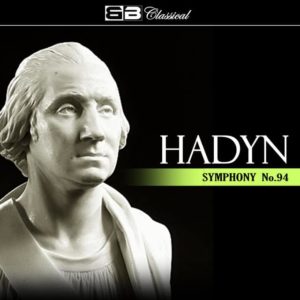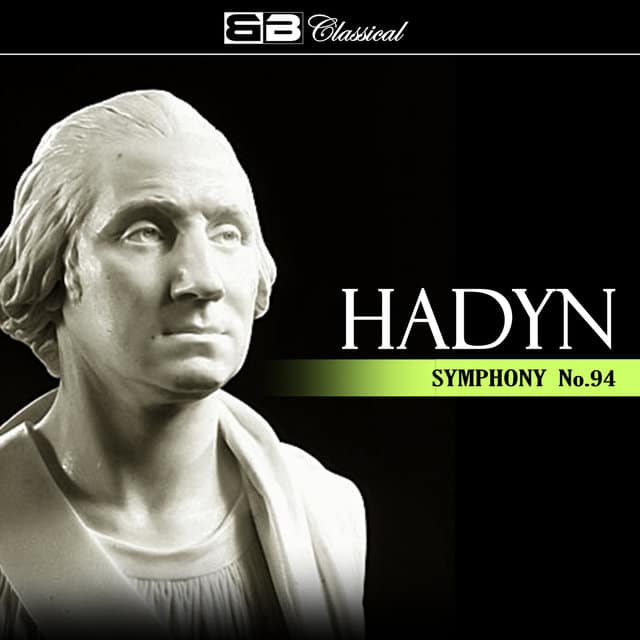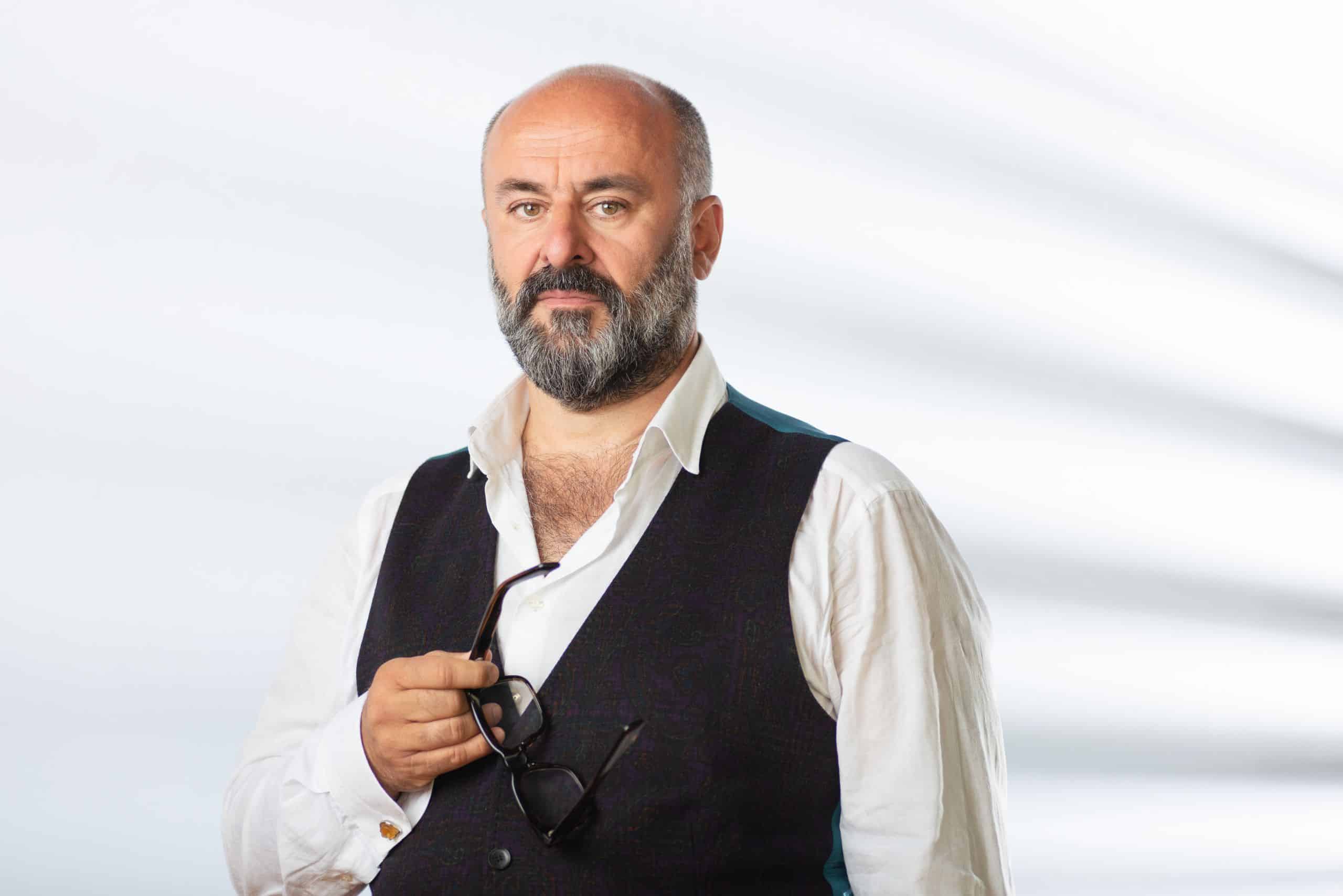So what’s the second thing that’s wrong with this record?
mainForget the typo in the title.
Who’s the famous chap in the picture?

The recording is now on general release. It’s probably excellent because the conductor is sharing this image on his social media.






by George! I think I recognize that bust 😉
Washington, no doubts!
Regietheater approaches being applied to CD covers. Used to, at least back in 2012, when this was released, as another commenter pointed out.
File under “How to get your advert on Slipped Disc without having to pay Norman”
I wouldn’t have heard of this disc if it wasn’t for SD posting about the ‘errors’ and I wouldn’t be surprised if the physical disc actually turns out to feature the correct spelling and bust.
It’s a 2013 recording with the Slovak Philharmonic Orchestra lead by Oliver von Dohnanyi. I looked it up on Amazon and it’s spelled correctly on the CD pictured there.
It’s either George or Tom Wilkinson.
That’s George Hadyn.
I always knew “Gheorghe Hagi” was a misspelling…
Serious mistake. George Washington never wrote Haydn’s Symphony nr 94.
Your proof?
The London newspaper The Morning Herald wrote in 1792:
“The Room was crowded last night…. A new composition from such a man as HAYDN is a great event in the history of music. — His novelty of last night was a grand Overture, the subject of which was remarkably simple, but extended to vast complication, exquisitly modulated and striking in effect. Critical applause was fervid and abundant.”
https://en.wikipedia.org/wiki/Symphony_No._94_(Haydn)
The symphony was written in 1791, when George Washington was on his Southern Tour to visit the southern states. There is abundant indication that Haydn wrote his symphony while there is not the slightest sign that Washington wrote the work during his exhausting journey, nor can it be assumed that he would have the manuscript have posted to London and have it performed under Haydn’s name while the composer was leading the performance. Also, there is no indication that Washington and Haydn had any direct contact with each other.
https://www.mountvernon.org/george-washington/the-first-president/george-washingtons-1791-southern-tour/
Although the Washington household held music in high esteem, in a letter W excused himself of being entirely void of any musical talent, not being able to sing a song or play a note on any instrument.
https://www.mountvernon.org/library/digitalhistory/digital-encyclopedia/article/music/
It is thus highly unlikely that Washington wrote Haydn’s symphony which is full of notes.
There is, however, a statue of George Washington in London, I believe in Trafalgar square 😉
everyone claims a winner!
The one on the pillar? I always thought it was Haydn.
Accepting, arguendo, your theory only compounds the mystery. Thomas Jefferson started to buy copies of Haydn’s music for his library circa 1784. Perhaps that was the proximite occasion for George nicking it. America was notorious for latitudarian views of copyright in those years.
Well then, maybe George Washington DID write Haydn’s symphony nr 94, but then he cheated so marvellously well that nobody found-out, not even Haydn.
“I know many notes. I know the best notes!”
Nor did he write Hadyn’s 94th either…
Isn’t is a Houdon composition?
https://www.mutualart.com/Artwork/BUST-OF-GEORGE-WASHINGTON/A05EF662B18B7657
What is it? Can’t be a CD if it contains only one Haydn symphony. And why no mention of ‘Surprise’?
Maybe that’s the surprise!
A new surprise added to the Surprise Symphony. Maybe the jokes on us.
Interesting that Haydn and Washington were born in the same year, 1732, but Haydn lived 12 years longer. The late 18th century concepts of Enlightenment that allowed the domestic servant Haydn to go to London for the premiere and develop a career there, presumably also shaped the American constitution’s concepts of human rights. All in the spirit of the time. Never mind a vote limited to white male landowners, the constitutionalization of human slavery, and a blind eye to expansionist genocide. Can one hear these contradictions in late classical era music–courtliness built on oppression, the transcendent ethos of enlightened nobility facing its death in the rumblings of freedom? So much to hear in Haydn and Mozart.
Interesting points raised. Is a Haydn symphony morally blemished for having been written under the patronage of a feudal system? Or is the generous support of Prince Esterhazy a redeeming feature of the man, who spent some of his resources on high art which came to enlighten the life of millions? And, can we hear these things in the music? Was Mozart’s acceptance of commissions from nobility hypocritical, undermining the beauty of his works? Were the members of 18C nobility ALWAYS bad, egoistic, suppressing, immoral people or were there also reasonable, caring, responsible people amongst them? Was Beethoven a pretentious hypocrite when he used musical tropes from the French revolutionary rally marches in his symphonies while accepting the generous support from Viennese nobility, dedicating his works to its members? And accepting a pension from three noblemen while cultivating republican virtues?
Late 18C music is full of contradictions, forces which bind things together and forces which try to tear them apart, especially in Beethoven, whose willpower to force the wild animals of invention within a strongly controlled formal framework could be read as reflecting the suppressing forcess of the Enlightenment while preaching freedom and liberation. But it seems more logical to read such things as reflecting a more universal human condition: the intellect trying to tame instincts which otherwise may turn into destructive forces. The greatness of the ‘classical style’ is that its composers achieved a balance of all these elements which still appeals to us in our entirely different age.
Those pesky Democrats with their slavery, KKK, and Jim Crow laws. What has this got to do with music, though (please do not interpret ‘though’ as coercion)?
What has this got to do with music? For those ignorant of history and the philosophical, social, and aesthetic forces that shaped it, absolutely nothing.
“The recording is now on general release.”
It’s not the only one and it seems to go back to at least 2012:
https://www.youtube.com/watch?v=ciDbOPju0p0
https://www.youtube.com/watch?v=g9oI7dYUZ0U
https://www.youtube.com/watch?v=gppkLyn-ggw
https://www.youtube.com/watch?v=AyOxzc9ormE
I think George secretly went to Europe to study orchestration with Franz. Somewhere they’re ‘haydn’ the evidence!
Indeed… a whole new territory of speculation opens itself up. What can we still trust? Maybe more repertoire works are not written by the people we always thought. There may have been a hughe collective conspiracy so clever that no trace of it can be detected.
It’s a 2013 recording with the Slovak Philharmonic Orchestra lead by Oliver von Dohnanyi. I looked it up on Amazon and it’s spelled correctly on the CD pictured there.
Looks rather dubious. Not sure what that alleged label is supposed to be (“BB Classical”?). No indication of conductor or orchestra, etc (along with the aforementioned typo and bizarre Washington bust).
What a surprise!!! I knew the cherry tree business was a myth. Did H.C. Robbins Landon know that George Washington composed symphonies under the pseudonym of Joseph Haydn? Landon might have had in a metaphorical set of false teeth for us.
ricardo muti
“HaDyn” The judgement in Hebrew…
It’s Christopher Columbus, who wrote the (original) New World Symphony.
I love George Washington
Any American will recognize the bust of George Washington.
They’ve done the impossible: they’ve got you talking about yet another recording of a Haydn symphony.
But based on the jacket and T-Shirt… I thought it was Columbus.